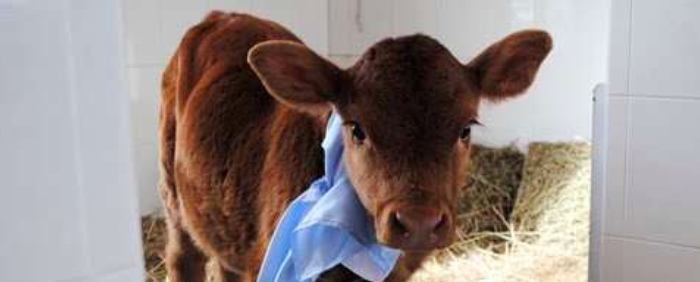
In Argentina, a heifer has just been born with two human genes, coding for two proteins that will bring his milk closer to that of the woman. Purpose of the game: to better protect babies whose mothers can not breastfeed from diseases.
Her name is Rosita Isa, she is a Jersey breed and she was born on April 6th in Argentina. It was born from a cloning operation on genetically modified cells, a work carried out by the Argentine biologists of the National Agricultural Institute, INTA , and the University of San Martin , hence the baptismal name Isa. And if it pays off, it is because it is supposed to produce a day of “humanized” milk . In fact, Rosita cells contain two genes of human origin, coding for two milk proteins , lactoferrin and lysozyme.
Both proteins have antibacterial properties and protect the infant against infectious diseases. Lactoferrin stimulates the immune system and lysozyme, also present in saliva, can kill bacteria. It is found in cow’s milk but that of the woman contains more. To enrich cow’s milk or even goat’s milk, Argentine biologists have explored the idea of genetic modification and claim to have succeeded.
Genetically infant formula
Both genes have been implanted at the same place in Rosita’s genome and will only be expressed in the mammary gland, say the authors. It will be until the beginning of next year, around April, when the young cow will produce her first milk, to know if the milk is actually richer in lysozyme and lactoferrin.
And Rosita will one day give birth to some heifers, some of whom will have received the two genes of human origin. With this experience, biologists hope to end up with herds of cows that would be responsible for producing milk for infants who are not breastfed and that would be of better quality than current powder substitutes. after the fight against malaria (with modified mosquitoes), against bird flu and against dengue fever , will GMOs come to the rescue of formula milk?